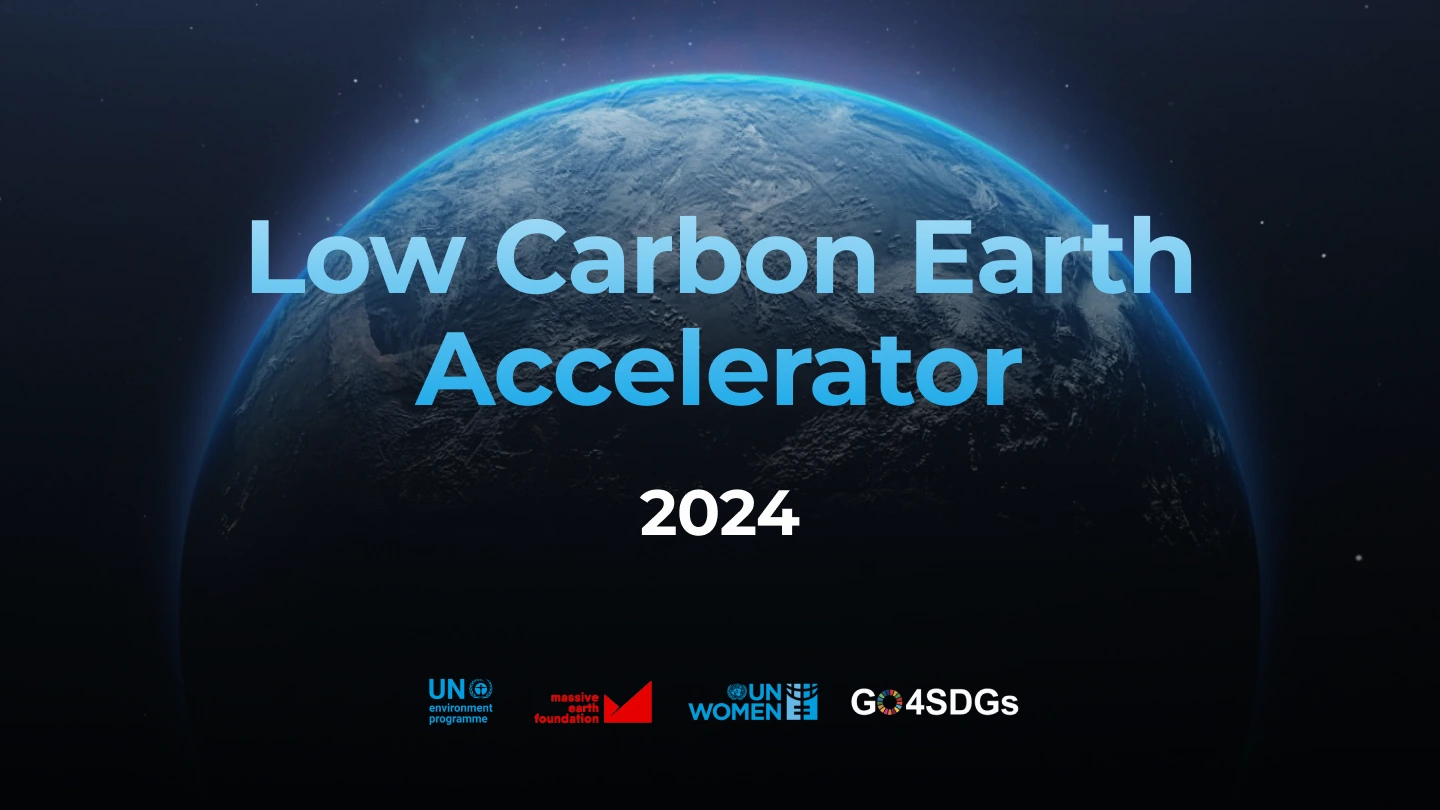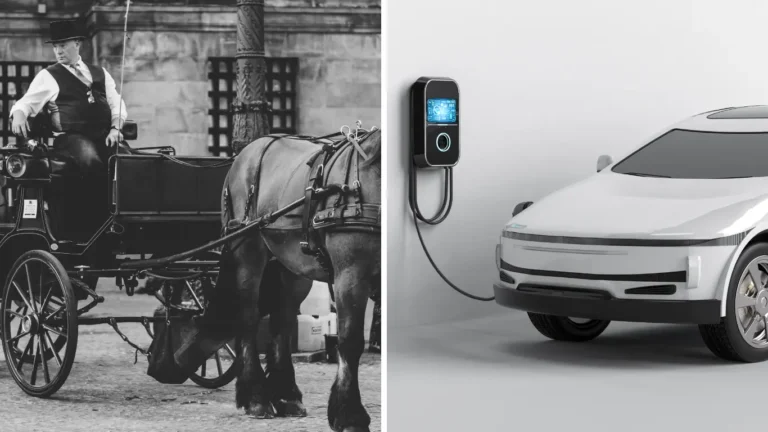What is LowCarbon.Earth by Massive Earth Foundation?
Low Carbon.Earth is a cutting-edge climate accelerator program created by Massive Earth Foundation in collaboration with the United Nations Environment Program (UNEP). Its primary goal is to support the development of innovative technological solutions that address the climate crisis and reduce global emissions. As the urgency to combat climate change grows, Low Carbon Earth (LCE) offers a platform for early-stage climate tech and clean tech startups to flourish, providing the necessary support to turn groundbreaking ideas into reality.
Recognizing the importance of fostering innovation in the fight against climate change, Low Carbon Earth specifically seeks out startups working in critical areas such as clean air, waste management, mobility, agriculture, plastic pollution, textiles, and biofuels. The program offers comprehensive support, including mentorship, workshops, networking opportunities, pitching sessions, and demo days. Startups are guided through the challenging stages of research, development, and seed funding, helping them build momentum in their early phases.

Launched in 2020, the Low Carbon Earth accelerator has already had a significant impact. Over the past three years, the program has successfully nurtured more than 90 climate tech startups, including 30 women-led initiatives. It has also connected with over 35 climate tech investors, creating a vibrant and expanding ecosystem. The success of LCE’23 garnered national media attention, and its influence continues to grow among investors and founders. The launch of LCE’24 has already sparked excitement, and the cohort of startups is actively benefiting from weekly sessions. With continued investor engagement and founder participation, this edition is shaping up to be the largest and most impactful yet, further cementing Low Carbon Earth’s influence in the climate tech ecosystem.
What Kind of Technology Comes Out of the LCE?
The Low Carbon Earth (LCE) accelerator is home to startups that are developing practical, scalable, and innovative solutions to address the climate crisis. The technologies coming out of LCE span a variety of sectors, all focused on reducing emissions and promoting sustainable practices. From bricks made out of plastic waste to carbon-capturing tiles and purifiers, LCE startups are pushing the boundaries of climate innovation. Other breakthrough ideas include sustainable textiles produced from waste weeds and eco-friendly, disposable sanitary pads. These startups show that the pursuit of zero emissions is not just a dream—it’s an achievable, scalable, and profitable reality.
These technologies are not just ideas; many have already entered the market. Products like compost-friendly plastics and sustainable household items such as floor cleaners and dishwasher liquids are becoming increasingly available. Each year, the LCE sees more applicants with more impressive solutions, and as the program’s cohort grows, the impact of the climate tech products they develop becomes more tangible. The growth of these technologies is helping to show that climate solutions can be integrated into everyday life, proving that a low-carbon future is within reach.
Beyond their technological advancements, LCE startups also tackle important social issues, such as gender equality. The development of biodegradable sanitary pads not only reduces environmental waste but also provides a more affordable and accessible solution for women, particularly in underserved communities. These pads empower women by offering sustainable menstrual health options, reducing the stigma around menstruation, and promoting gender equality. This highlights how LCE’s climate tech solutions go beyond the environment to create positive social impacts.
In essence, the LCE accelerator supports the development of technologies that not only combat climate change but also contribute to the betterment of society. Recognizing the need for social equality, climate justice, and responsibility, LCE actively encourages women-led startups and startups from minority communities to apply for the program. By nurturing these startups with a focus on sustainability and social responsibility, LCE is proving that the future of climate tech is both innovative and inclusive, addressing the dual challenges of environmental sustainability and social inequality.
How Do Startups Benefit From The Accelerator?
Startups can benefit from a program like LCE in several critical areas:
- Funding Opportunities: Startups gain exposure to investors, venture capitalists, and grants, which can help them secure seed funding or additional capital for growth.
- Product Development: Through mentorship and workshops, startups can refine their product or technology, ensuring it’s market-ready and scalable. They receive guidance on prototyping, testing, and incorporating feedback for improvement.
- Business Strategy: Startups can benefit from expert advice on creating sustainable business models, managing resources efficiently, and identifying new revenue streams.
- Regulatory and Compliance Support: Guidance on navigating environmental regulations, certifications, and compliance standards, ensuring their solutions align with industry requirements.
- Go-to-Market Strategy: Participants learn how to build effective go-to-market strategies, from customer acquisition to positioning their products for maximum impact in their target markets.
- Partnerships and Collaborations: Startups can forge valuable partnerships with industry leaders, other startups, and corporates, leading to collaborations that help scale their technology.
- Brand Building and PR: The program helps startups craft compelling stories for their brand and product, which can lead to media coverage, increased visibility, and enhanced credibility within the climate tech industry.
- Sales and Customer Relationships: Startups can improve their sales techniques and customer relationship management, learning how to build a loyal customer base and grow their market presence.
- Sustainability Integration: Startups learn how to integrate sustainability into their core operations, making their product or service not only viable but also environmentally responsible, which is crucial in climate tech.
These areas collectively enable startups to accelerate growth, enhance their products, and build long-lasting success. Furthermore, LowCarbon.Earth is a one-of-a-kind accelerator focused solely on climate tech. It works in collaboration with UNEP, Go4SDG, UN Women, and various other major league international organizations to scout for most promising startups and boost their growth.
What’s The Structure of LCE?
The Low Carbon Earth (LCE) accelerator program typically runs for three months and includes weekly virtual sessions designed to guide startups through various growth stages. These sessions are led by a diverse group of mentors, including founders, industry leaders, investors, venture capitalists, and topic experts. Participants receive lessons on key areas such as research and development, marketing, and pitching, tailored to help them refine their strategies and scale their products.
Throughout the program, startups engage in workshops, seminars, fireside chats, and mixer networking events that provide valuable opportunities for growth and collaboration. In addition, weekly or monthly exercises and assignments help assess and improve each startup’s product, ensuring continuous development.
The program culminates in a Demo Day, where the top-performing startups get the opportunity to pitch their products to investors from the Asia-Pacific region. This provides a high chance of securing funding, expanding networks, and accelerating their growth journey, making LCE a highly impactful accelerator for climate tech startups.
LCE in the Past: A Track Record of Success
Over the years, the Low Carbon Earth (LCE) program has proven to be a highly impactful accelerator, providing startups with significant opportunities for growth and success. Startups in previous cohorts have secured grants of up to $10,000, in addition to receiving valuable Amazon and Google Cloud credits to help scale their businesses. LCE’s success is powered by its partnerships with leading global organizations, including UNEP, GO4SDGs, UN Women, and APCAP, creating a collaborative effort to reduce carbon emissions, develop innovative technologies, and support scientific research to combat climate change.
The program’s influence and achievements have garnered recognition from national and international media, amplifying its reach and further validating its critical role in the fight against climate change. Through these collaborations and media visibility, LCE continues to drive technological advancements and environmental progress on a global scale.
If you interested in joining the LowCarbon.Earth Accelerator program, you can benefit from the early bird application. Go to LowCarbon.Earth for more information.






